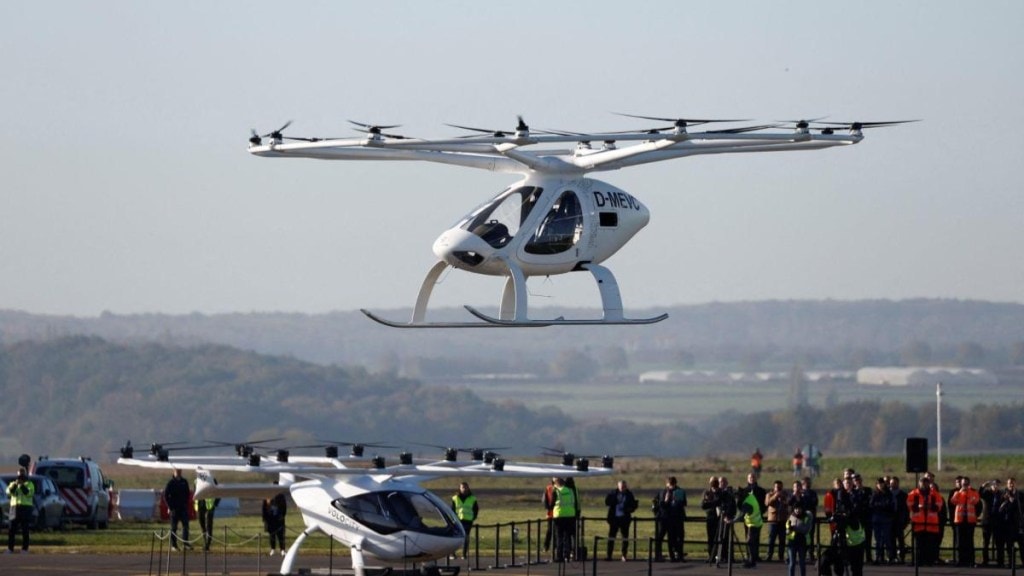Prime Minister Narendra Modi recently highlighted the growth potential of the country’s aviation sector, saying air travel has become inclusive and affordable with the regional connectivity scheme as more people are travelling by air from smaller cities. As cities across the globe struggle with growing traffic congestion, a revolutionary solution is on the horizon—air taxis.
These electric vehicles, known as eVTOLs (electric vertical take-off and landing), are set to transform urban mobility by offering faster, eco-friendly, and congestion-free travel. With the ability to take off and land vertically, air taxis are poised to become a game-changer in the transportation industry, marking the beginning of a new era in sustainable urban travel.
The promise of air taxis – Tech involved
Air taxis aim to revolutionize commuting by offering a faster and cleaner alternative to traditional transportation. Designed for short trips within cities or between nearby towns, these small electric aircraft can bypass the traffic jams and long commutes faced by millions daily. By flying directly from one location to another, air taxis could dramatically reduce travel time, making them a convenient option for city dwellers.
The technology behind these futuristic vehicles combines advancements in electric engines, batteries, and self-piloting systems. Unlike helicopters, which are noisy and dependent on fossil fuels, air taxis rely on multiple electric rotors or fans to lift and propel them, making them quieter and emission-free. This unique combination of features allows air taxis to operate efficiently, producing a minimal environmental footprint.
While air taxis promise to transform urban transportation, integrating them into existing airspace management systems presents challenges. Coordination with air traffic control (ATC) and designing efficient flight routes will be essential to prevent congestion and ensure safety alongside commercial aircraft.
Is India ready for air taxis?
While air taxis are already being tested in countries like the US, UAE, and the UK, their feasibility in India remains uncertain. Introducing such a service requires extensive groundwork, rigorous testing and infrastructure development. However, with growing urbanization and road congestion, the potential for air taxis in India is undeniable, provided these challenges are addressed.
